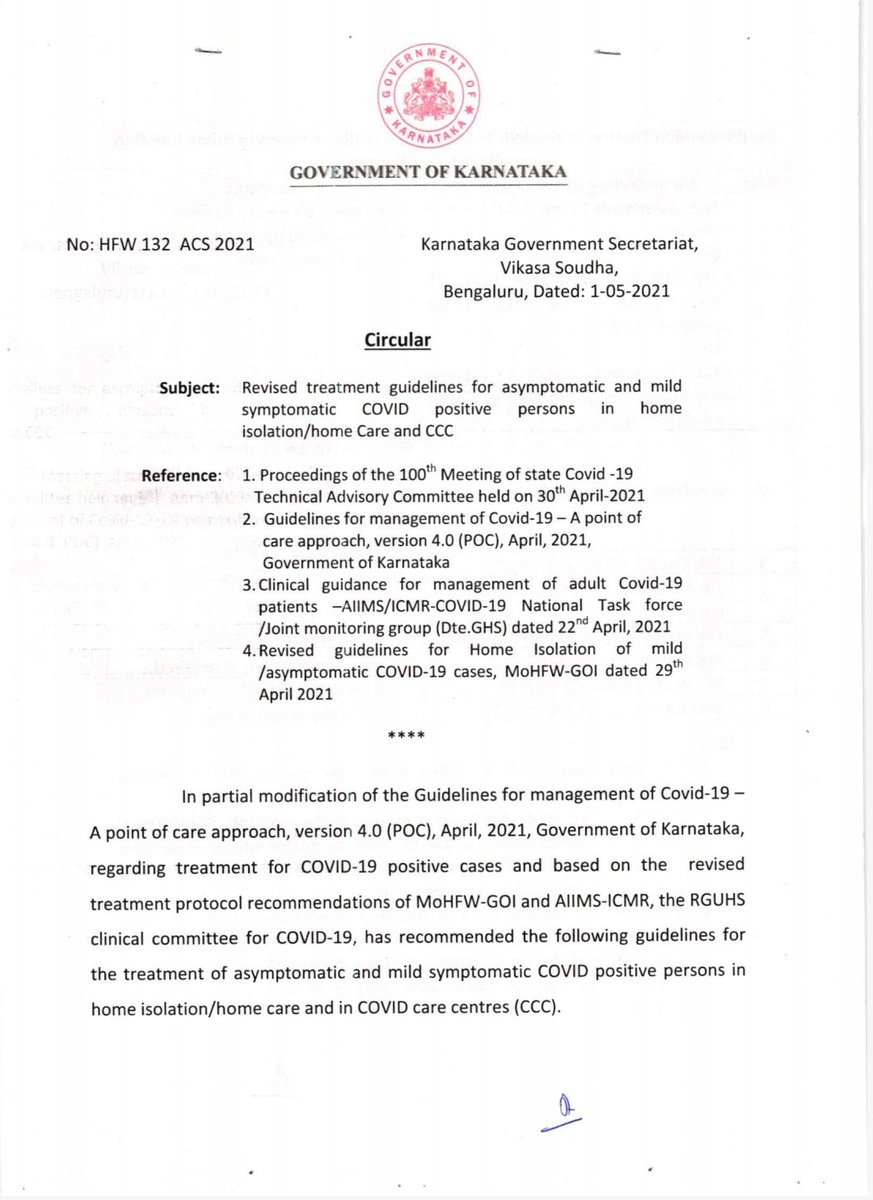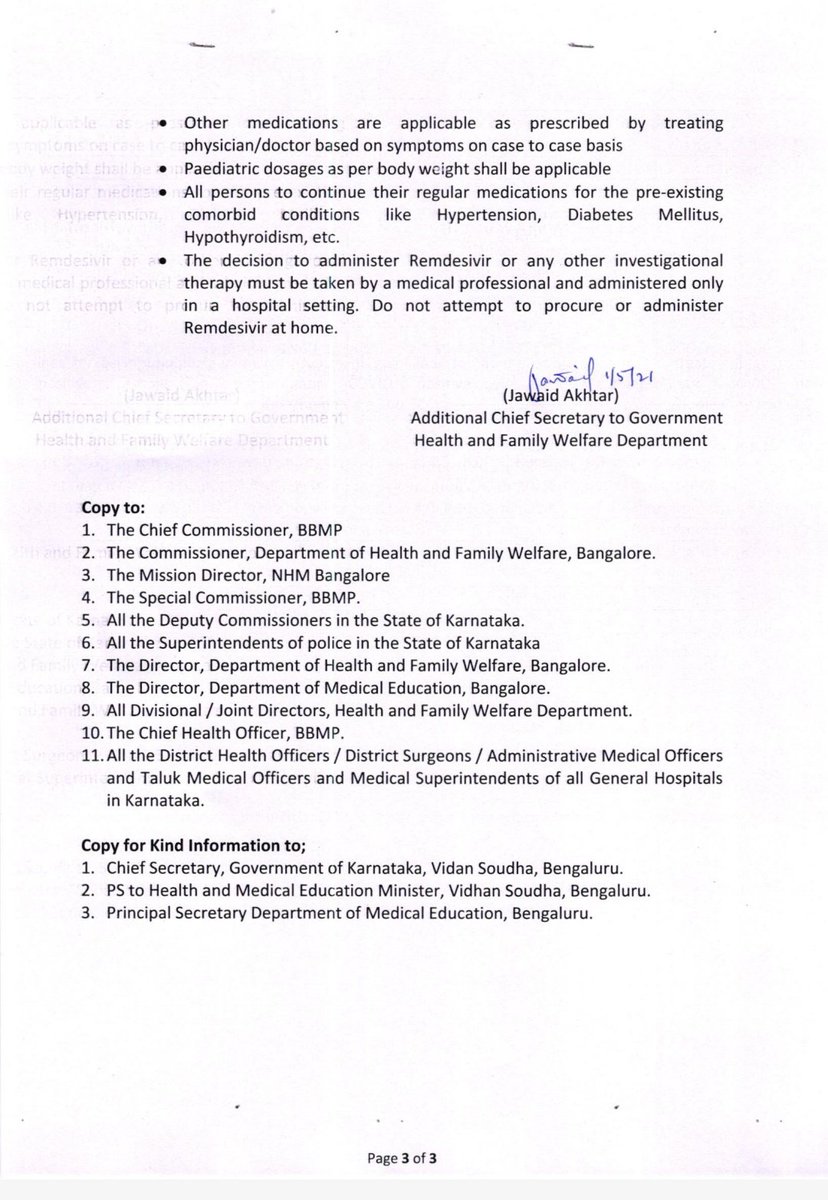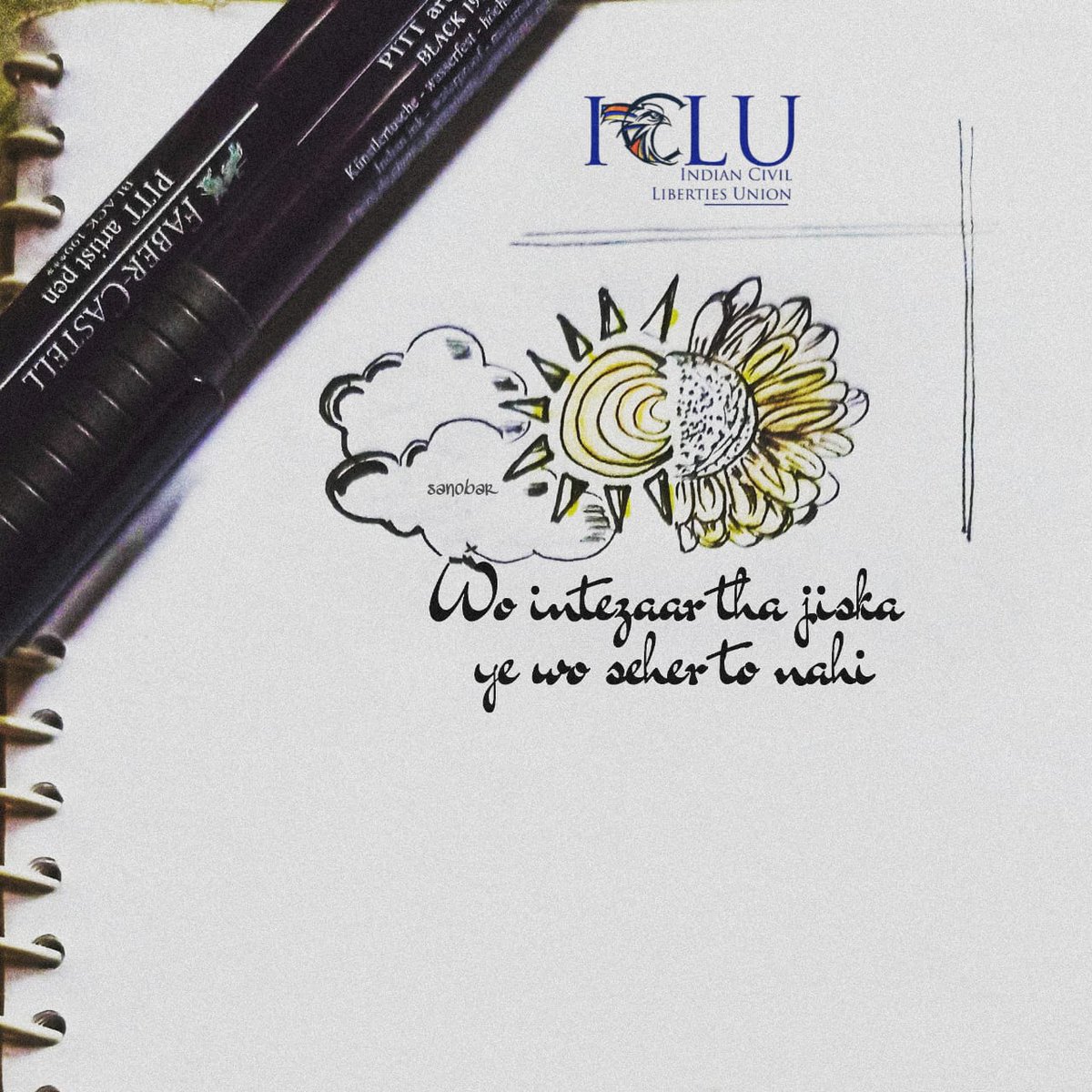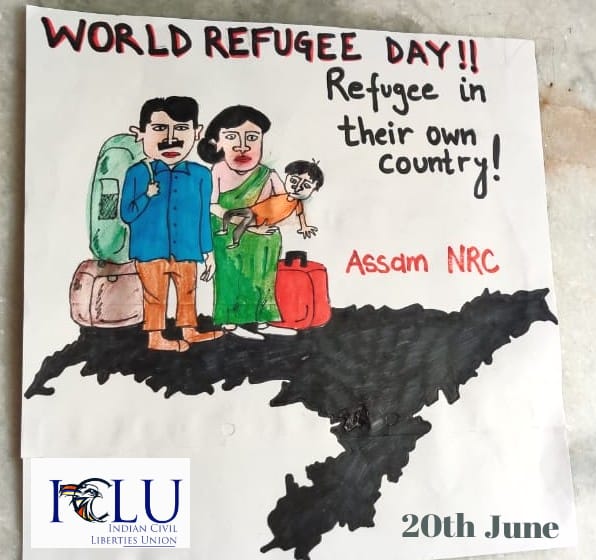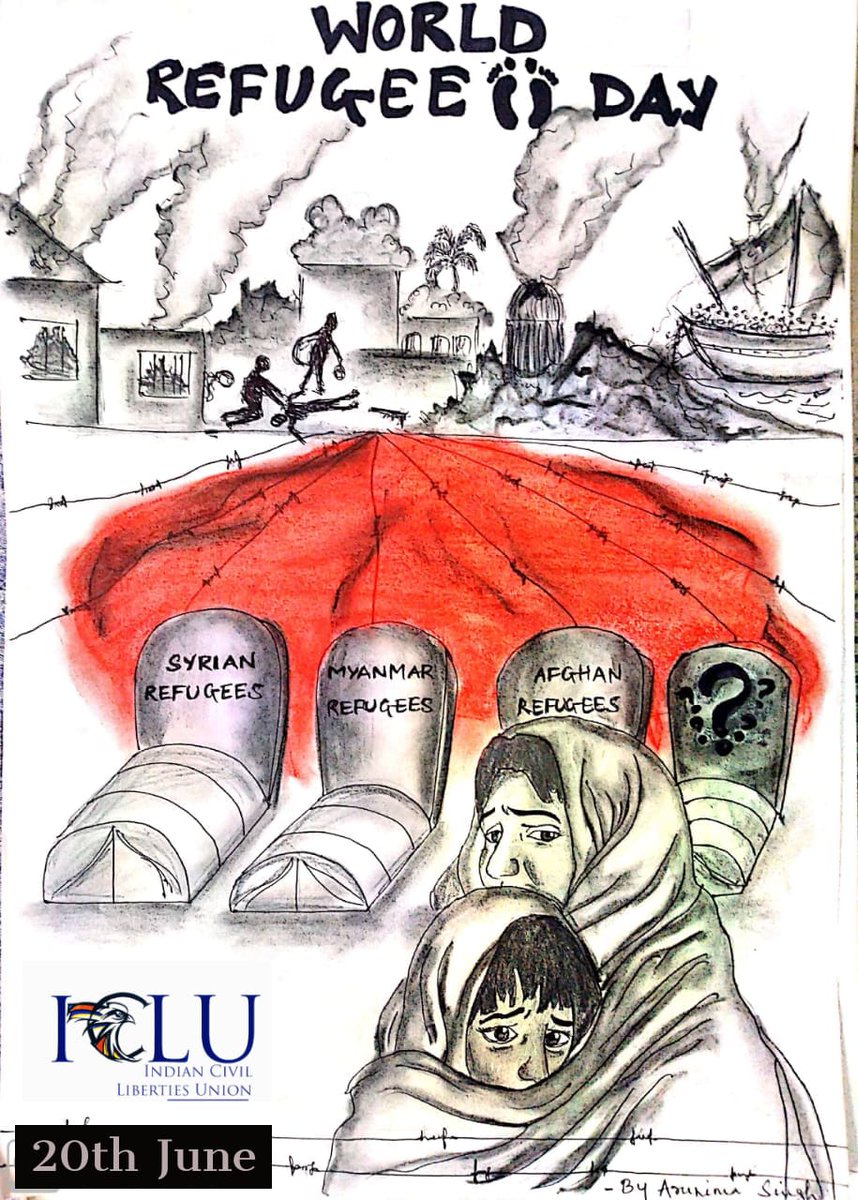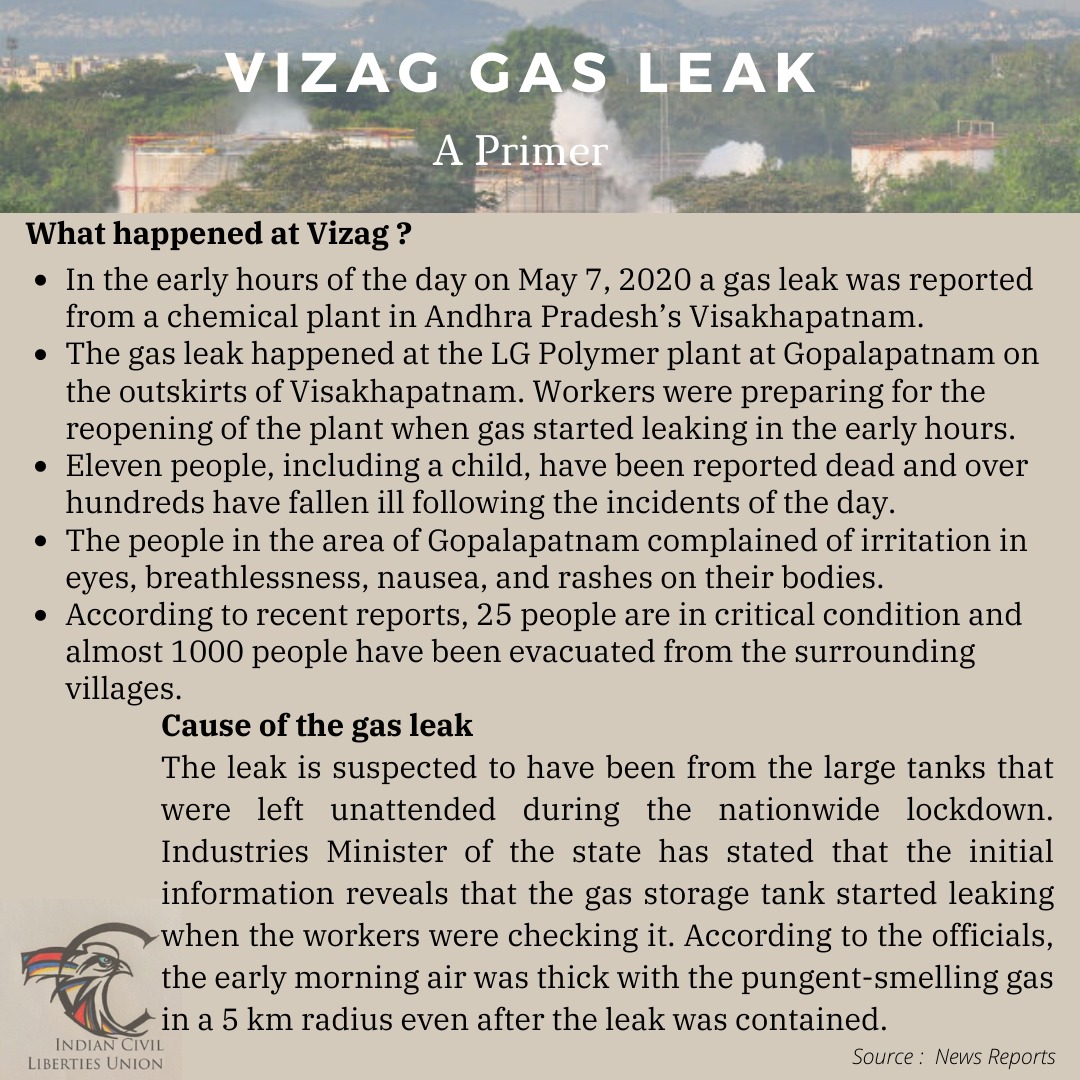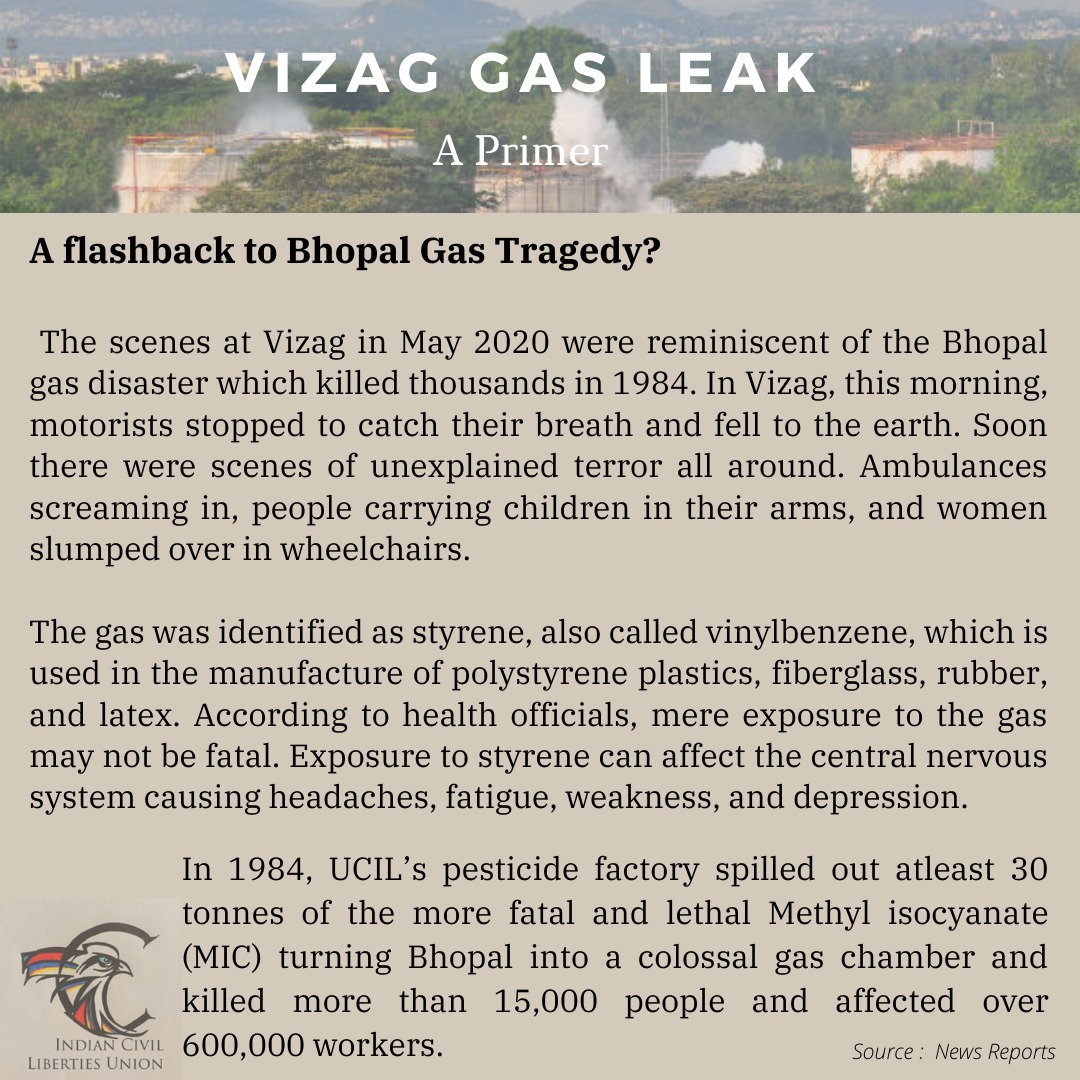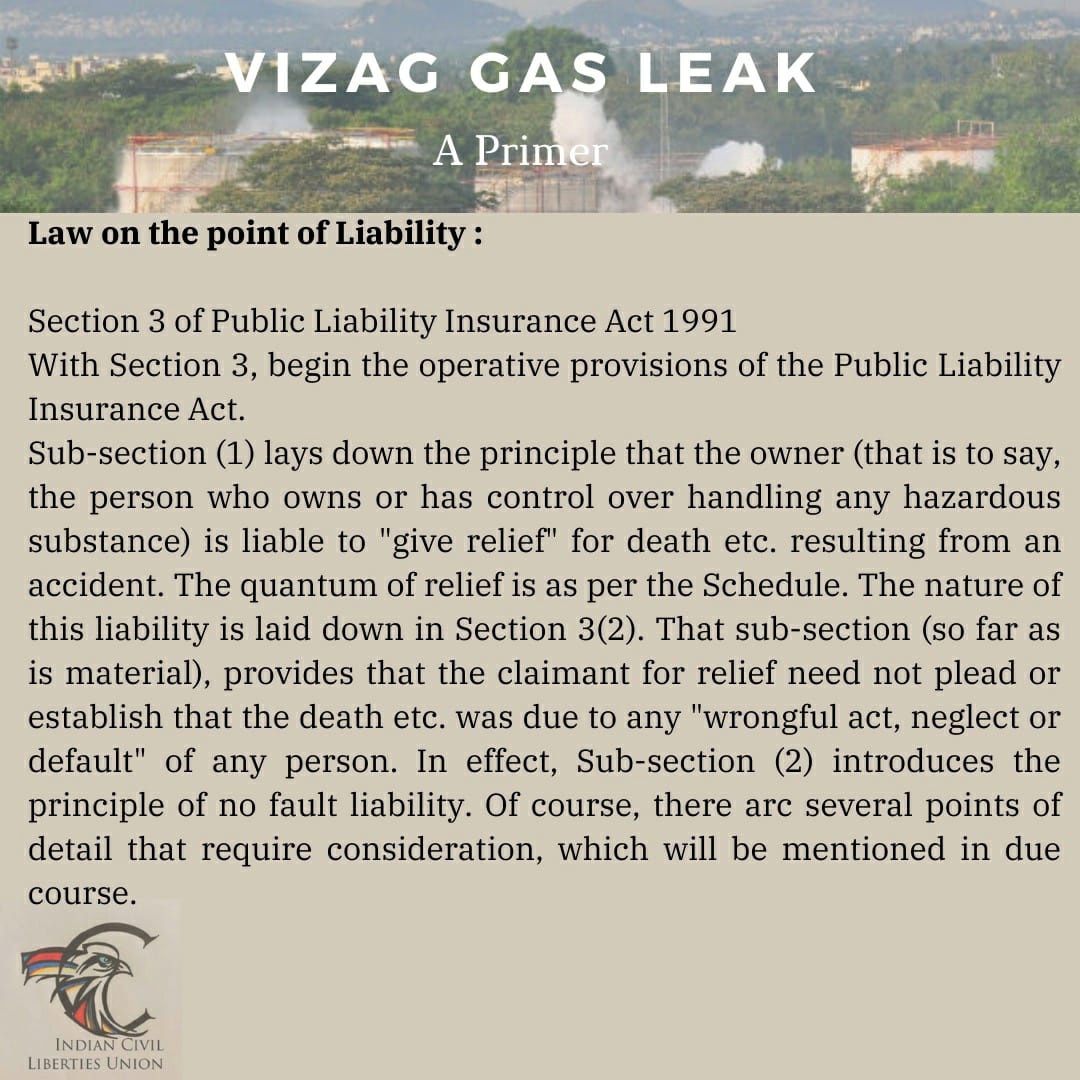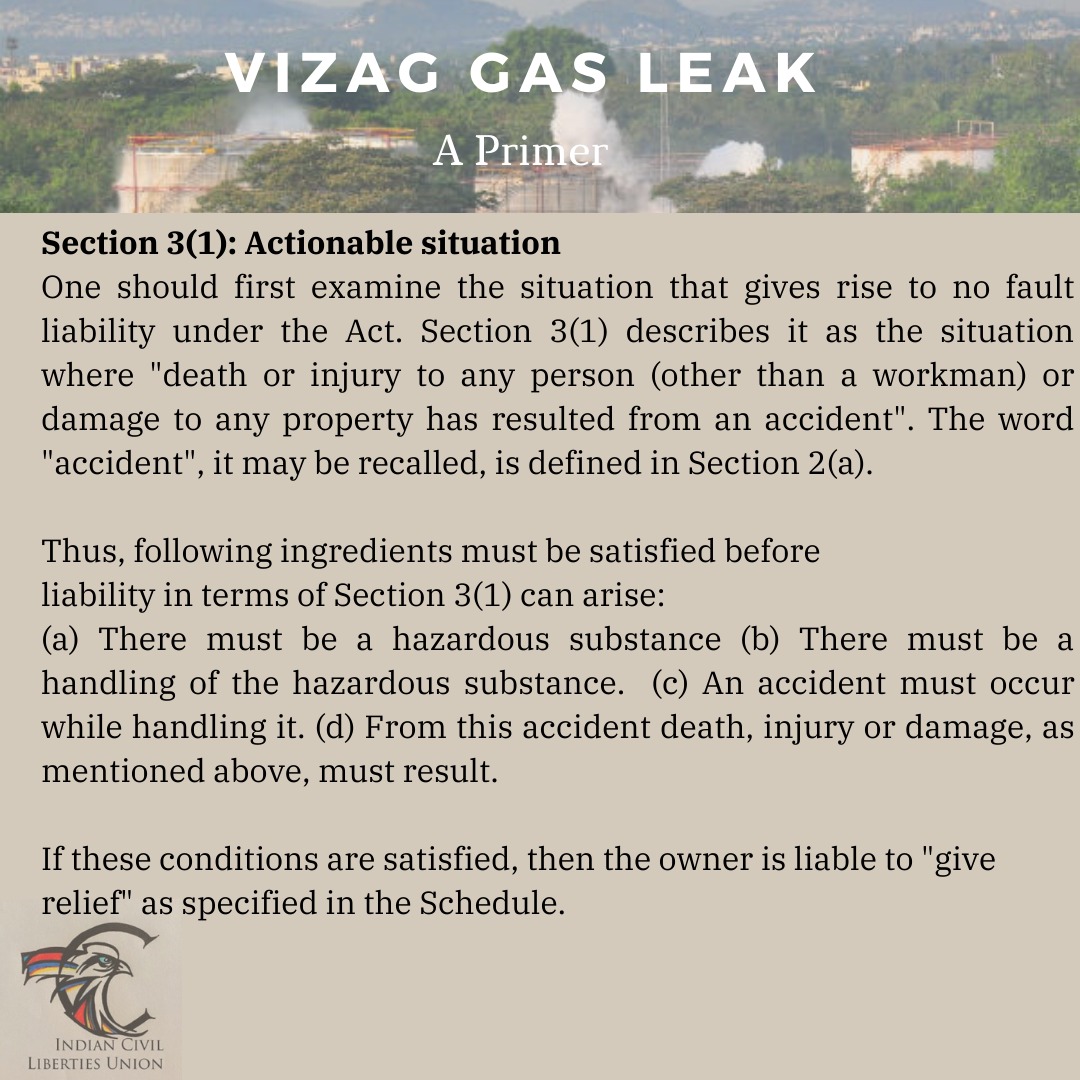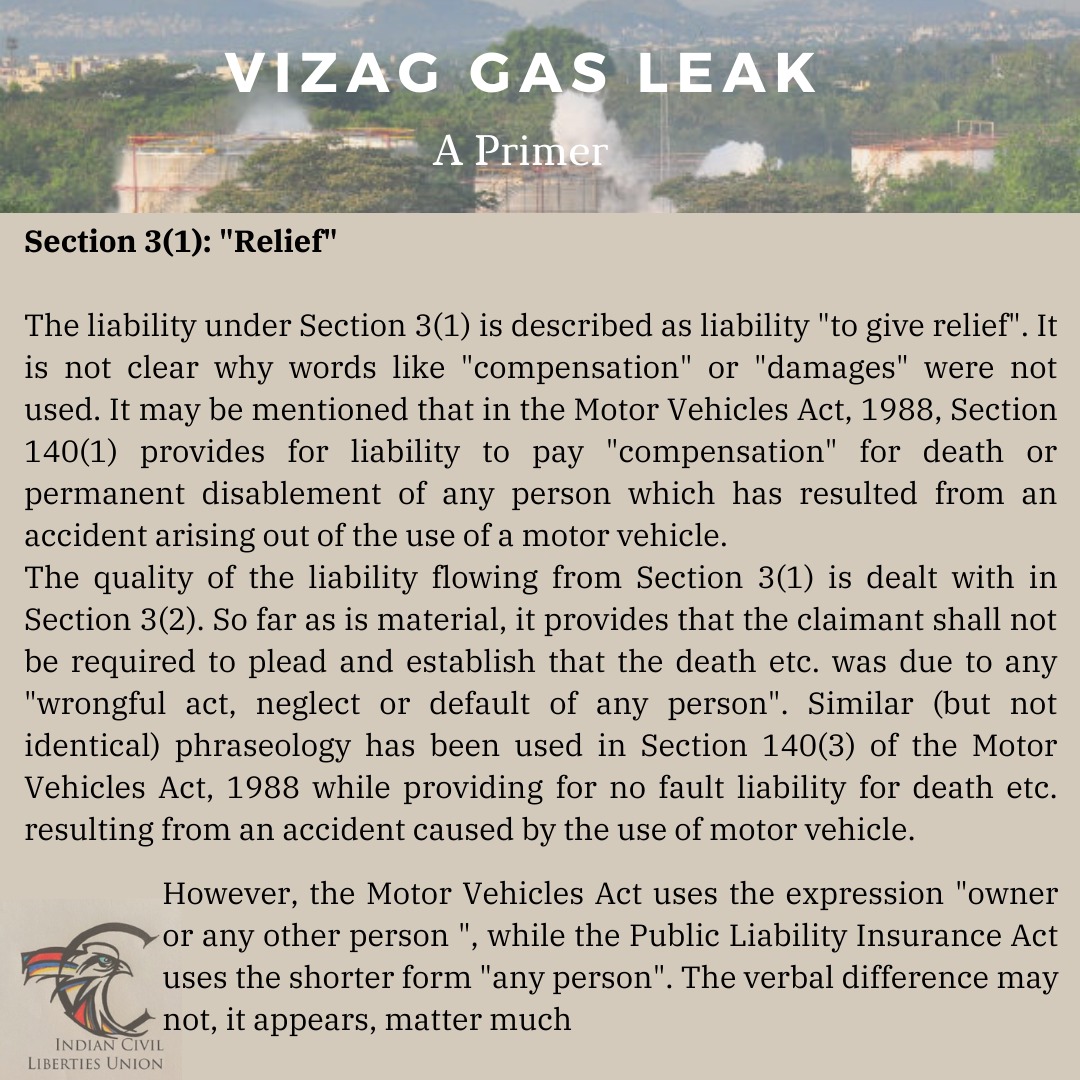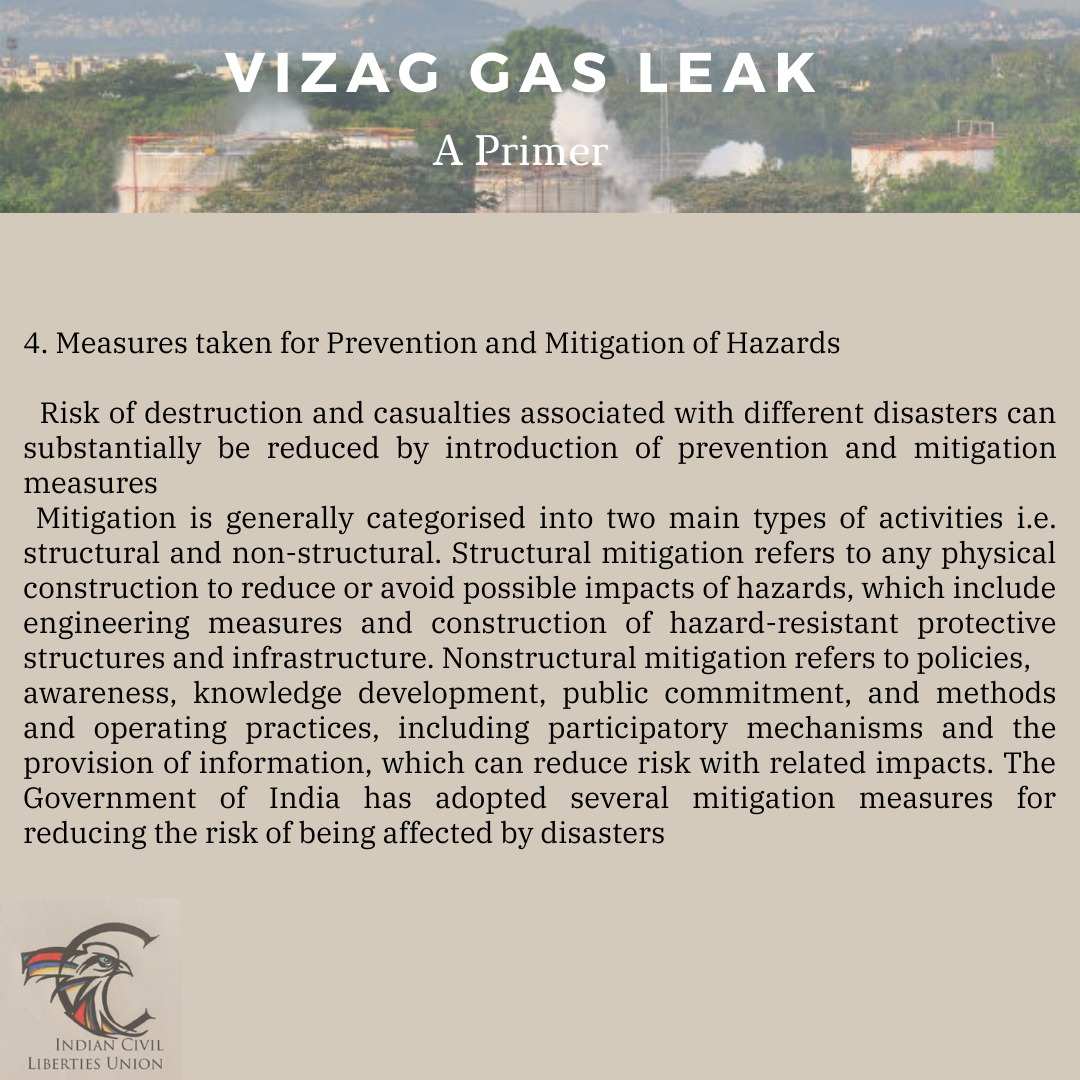
This #InternationalWomensDay2022 let’s revisit the progressive judgments of the Indian Courts reaffirming the rights of the women and providing them better protection of the law.
#ICLU celebrates 21 judgments of the #SupremeCourt on this #WomensDay
#ICLU celebrates 21 judgments of the #SupremeCourt on this #WomensDay
1. The Apex Court providing for detailed guidelines for safety of women at workplace in Vishakha & Ors. v. State of Rajasthan & Ors. (1997) directed employers to provide a mechanism for redressal of grievances of employees. (1/2)
These guidelines were eventually formalised as legislation with the passing of the Sexual Harrasment of Women at Workplace (Prevention, Prohibition and Redressal) Act, 2013. (2/2)
#GuidelinesAgainstHarrassment
#ICLU
#GuidelinesAgainstHarrassment
#ICLU
2. Gaurav Jain v. UOI & Ors. (1997) the Court directed for constitution of a committee to formulate a scheme for rehabilitation of children of prostitutes &child prostitutes and for its implementation and submission of a periodical report of its registry
#rehabilitationofChildren
#rehabilitationofChildren
The bench said, “The children of prostitutes have right to equality of opportunity, dignity, care, protection and rehabilitation so as to be part of the mainstream of social life without any pare-stigma attached to them.”
#rehabilitation
#ICLU
#rehabilitation
#ICLU
3. In Gita Hariharan & Anr. v. Reserve Bank of India (1999) it was held that mother or the father whoever is capable of taking care of the child and is deeply interested in the welfare of the child can be the natural guardian and not necessarily the father.
#ICLU
#ICLU
Both the father and mother are natural guardians of a minor Hindu child, and the mother cannot be said to be natural guardian only after the death of the father.
#Parents
#ICLU
#Parents
#ICLU
4. Daniel Latifi v. Union of India (2001) Court held that it is the liability of Muslim husband to his divorced wife arising u/s. 3(1)(a) of Act to pay maintenance not confined to Iddat period.
Husband is liable to make reasonable, fair provision for future &for maintenance too
Husband is liable to make reasonable, fair provision for future &for maintenance too
5. Anuj Garg v Hotel Association of India (2008) the Constitutional validity of Section 30 of the Punjab Excise Act, 1914 was discussed, which prohibited the employment of women any men under the age of 25 in any establishment where liquor or any drugs were consumed by the public
The Apex Court struck it down and held that the law resulted in "invidious discrimination perpetuating sexual differences."
#ICLU
#Employment
#ICLU
#Employment
The Supreme Court in Rajesh & Another v. State of Haryana (2013) had held that the ‘two-finger test’ and its interpretation violates the right of rape survivors to privacy, physical and mental integrity and dignity.
#VirginityTests
#ICLU
#VirginityTests
#ICLU
It held that there was consensus that ‘virginity tests’ like the ‘two finger test’ and hymen test could not indicate definitively that there was any sexual violence.
#TwoFingerTests
#ICLU
#InternationalWomensDay
#TwoFingerTests
#ICLU
#InternationalWomensDay
7. Shayara Bano v. Union of India (2017) the Supreme Court declared the practice of triple talaq which is instant and irrevocable as unconstitutional.
#ShayaraBano
#InternationalWomensDay2022
#ICLU
#ShayaraBano
#InternationalWomensDay2022
#ICLU
It was held that the practice is manifestly arbitrary in the sense that marital tie can be broken capriciously and whimsically by a Muslim man. There was no scope of reconciliation between husband and wife which is essential to save the marital tie.
#ShayaraBano
#WomensDay
#ShayaraBano
#WomensDay
8. Affirming a woman's sexual freedom, five-judge bench of Supreme Court in Joseph Shine v. Union of India (2018) unanimously struck down section 497 IPC saying that its unconstitutional since the very basis of criminalising adultery...
#CourtsOnAdultery
#ICLU
#WomensDay
#CourtsOnAdultery
#ICLU
#WomensDay
...was the assumption that a woman is considered the property of the husband and cannot have relations outside the marriage. The said section violated the right to privacy as well as the liberty of women by discriminating against married women and perpetuating gender stereotypes.
Apex Court in Indian Young Lawyers Association v. The State of Kerala (2018), famously known as Sabrimala judgment held that devotion cannot be subjected to gender discrimination & permitted the entry of women of all ages into #Sabrimala despite a centuries old custom banning it.
10. Vineeta Sharma v. Rakesh Sharma (2020) is a landmark judgement w.r.t. the property rights of Hindu women wherein the Supreme Court held that daughters would have equal coparcenary rights in the Hindu Undivided Family .....
by virtue of taking birth in the family and they could not be excluded irrespective of whether they were born before the 2005 amendment to the Hindu Succession Act, 2005.
#InternationalWomensDay2022
#ICLU
#InternationalWomensDay2022
#ICLU
11. Secretary, Ministry of Defence v. Babita Puniya & Ors. (2020) the Supreme Court held that women army officers are eligible for permanent commissions and allowed women officers to be in commanding roles.
#Permanentacommissions
#womenempowerment
#Permanentacommissions
#womenempowerment
The decision of the Apex Court now puts women officers at par with their male counterparts in matters of promotions, rank, benefits and pensions
#IndianArmy
#WomensDay
#ICLU
#IndianArmy
#WomensDay
#ICLU
12. In Union of India v. Lt Cdr Annie Nagaraja (2020) maintaining that women and men should be treated equally, the Supreme Court cleared permanent commission for women in the Navy
#IndianNavy
#womenpower
#ICLU
#IndianNavy
#womenpower
#ICLU
13. Col Ramnesh Pal Singh v. Sugandhi Aggarwal (2021) while addressing a matter with regard to maintenance to wife, Subramonium Prasad, J., held fact tht wife is capable of earning is no ground to deny interim maintenance to her. Often wives sacrifice their career only for family
In Nitisha v. Union of India (2021) the Supreme Court held that the administrative requirement imposed by the Indian Army authorities while considering the case of the Women Short Service Commissions Officers (WSSCO) .....
#WomenShortServiceCommission
#ICLU
#WomensDay2022
#WomenShortServiceCommission
#ICLU
#WomensDay2022
for the grant of Permanent Commission (PC), of benchmarking these officers with the officers lowest in merit in the corresponding male batch was arbitrary and irrational
#PermanentCommission
#InternationalWomensDay2022
#PermanentCommission
#InternationalWomensDay2022
15. Rekha Sengar v State of Madhya Pradesh (2021) the Apex Court held that Pre-conception and Pre-natal Diagnostic Techniques (Regulation and Prevention of Misuse) Act came by a cultural history of preference for the male child in India.
#SexDetermination and The courts
#ICLU
#SexDetermination and The courts
#ICLU
That Pre-natal sex determination forms a kind of violence against women, which has the potential to damage the very fabric of gender equality in India.
#ViolenceAgainstWomen
#Iclu
#WomensDay
#ViolenceAgainstWomen
#Iclu
#WomensDay
Aparna Bhat and others v State of Madhya Pradesh and others (2021) the Apex Court observed that rape myths undermine the credibility of women who are seen to deviate far from stereotypical notions of chastity, resistance to rape, etc.
#RapeMyths
#InternationalWomensDay
#RapeMyths
#InternationalWomensDay
The idea of a ideal sexual assault victim undermines the lived experiences of various sexual assault victims
#RapeMyths
#ViolenceAgainstWomen
#ICLU
#RapeMyths
#ViolenceAgainstWomen
#ICLU
17. In Union of India and ors v Mudrika Singh (2021) the Apex court held that, right against sexual harassment is a part of right to life and right to dignity under Article 21 of the Constitution of India.
#Article21
#ICLU
#Article21
#ICLU
18. In Punam Co-operative Housing Society Ltd. v Alok Agarwal & Ors (2021) the Apex Court held that Co-operative societies can't deny membership to single women under the garb of Article 19(1)(c) of the Constitution
#Article19
#ICLU
#womenpower
#Article19
#ICLU
#womenpower
19. Dipika Jagatram Sahani v Union of India (2021) the Apex court while giving directions for reopening of Anganwadi Centres in India observed that it is a statutory obligation of the Centre & states to provide for nutritional support to pregnant women, lactating mothers & child
20. Kirti & Anr. Etc. v. Oriental Insurance Company (2021), the Apex court observed that a homemaker’s notional income must be determined by Courts keeping in mind the number of women engaged in this activity, and the value of their labour, service and sacrifices.
#ICLU
#ICLU
Their activities contribute in a real way to the economic condition of the family and the economy of the nation and ought to be recognised as a constitutional vision of social equality and dignity of all individuals
#InternationalWomensDay2022
#ICLU
#InternationalWomensDay2022
#ICLU
21. In Kush Kalra v Union of India, Kailas Uhavrao More v. Union of India (2021) the Apex Court passing an interim order allowed women to take the admission exam to the National Defence Academy (NDA).
#NationalDefenceAcademy
#ICLU
#NationalDefenceAcademy
#ICLU
#Bonus
22. In xyz v. GNCTD (2022) while observing that reproductive choice is a facet of reproductive rights of a woman and a dimension of her personal liberty, the Delhi High Court has allowed termination of 28 weeks foetus of a 33 year old woman.
#ReproductiveJustice
#ICLU
22. In xyz v. GNCTD (2022) while observing that reproductive choice is a facet of reproductive rights of a woman and a dimension of her personal liberty, the Delhi High Court has allowed termination of 28 weeks foetus of a 33 year old woman.
#ReproductiveJustice
#ICLU
This thread by compiled by the women members of @ICLU_Ind. Students, lawyers, academics, these women and girls make up more than fifty percent of ICLU and are the leaders in making of young, vibrant and a more equal India.
#InternationalWomensDay
#ICLU
#InternationalWomensDay
#ICLU
11. Secretary, Ministry of Defence v. Babita Puniya & Ors. (2020) the Supreme Court held that women army officers are eligible for permanent commissions and allowed women officers to be in commanding roles.
#Permanentacommissions
#womenempowerment
#Permanentacommissions
#womenempowerment
The decision of the Apex Court now puts women officers at par with their male counterparts in matters of promotions, rank, benefits and pensions
#IndianArmy
#WomensDay
#ICLU
#IndianArmy
#WomensDay
#ICLU
12. In Union of India v. Lt Cdr Annie Nagaraja (2020) maintaining that women and men should be treated equally, the Supreme Court cleared permanent commission for women in the Navy
#IndianNavy
#womenpower
#ICLU
#IndianNavy
#womenpower
#ICLU
13. Col Ramnesh Pal Singh v. Sugandhi Aggarwal (2021) while addressing a matter with regard to maintenance to wife, Subramonium Prasad, J., held fact tht wife is capable of earning is no ground to deny interim maintenance to her. Often wives sacrifice their career only for family
In Nitisha v. Union of India (2021) the Supreme Court held that the administrative requirement imposed by the Indian Army authorities while considering the case of the Women Short Service Commissions Officers (WSSCO) .....
#WomenShortServiceCommission
#ICLU
#WomensDay2022
#WomenShortServiceCommission
#ICLU
#WomensDay2022
6. The Supreme Court in Rajesh & Another v. State of Haryana (2013) had held that the ‘two-finger test’ and its interpretation violates the right of rape survivors to privacy, physical and mental integrity and dignity. It held that there was consensus that ‘virginity tests’
like the ‘two finger test’ and hymen test could not indicate definitively that there was any sexual violence.
7. In Shayara Bano v. Union of India (2017) the Supreme Court declared the practice of triple talaq which is instant and irrevocable as unconstitutional. It was held that the practice is manifestly arbitrary in the sense that marital tie can be broken capriciously and whimsically
by a Muslim man. There was no scope of reconciliation between husband and wife which is essential to save the marital tie
8. Affirming a woman's sexual freedom, the five-judge bench of Supreme Court in Joseph Shine v. Union of India (2018) unanimously struck down section 497 IPC saying that it was unconstitutional since the very basis of criminalising adultry was the assumption that a
woman is considered the property of the husband and cannot have relations outside the marriage. The said section violated the right to privacy as well as the liberty of women by discriminating against married women and perpetuating gender stereotypes
9. The Apex Court in Indian Young Lawyers Association v. The State of Kerala (2018), famously known as Sabrimala judgment held that devotion cannot be subjected to gender discrimination and permitted the entry of women of all ages into the Sabrimala Temple
10. Vineeta Sharma v. Rakesh Sharma (2020) is a landmark judgement w.r.t. the property rights of Hindu women wherein the Supreme Court held that daughters would have equal coparcenary rights in the Hindu Undivided Family
11. In The Secretary, Ministry of Defence v. Babita Puniya & Ors. (2020) the SC held that women army officers are eligible for permanent commissions and allowed women officers to be in commanding roles putting women officers at par with their male counterparts in all matters
12. In Union of India v. Lt Cdr Annie Nagaraja (2020) maintaining that women and men should be treated equally, the Supreme Court cleared permanent commission for women in the Navy.
13. In Col Ramnesh Pal Singh v. Sugandhi Aggarwal (2021) while addressing a matter with regard to maintenance to wife, Subramonium Prasad, J., held that the fact that the wife is capable of earning is no ground to deny interim maintenance to her.
14. In Nitisha v. Union of India (2021) the Supreme Court held that the administrative requirement imposed by the Indian Army authorities while considering the case of the Women Short Service Commissions Officers (WSSCO) for the grant of Permanent Commission (PC),
15. In Rekha Sengar v State of Madhya Pradesh (2021) the Apex Court held that Pre-conception and Pre-natal Diagnostic Techniques (Regulation and Prevention of Misuse) Act came by a cultural history of preference for the male child in India.
16. In Aparna Bhat and others v State of Madhya Pradesh and others (2021) the Apex Court observed that rape myths undermine the credibility of women who are seen to deviate far from stereotypical notions of chastity, resistance to rape, etc.
17. In Union of India and ors v Mudrika Singh (2021) the Apex court held that, right against sexual harassment is a part of right to life and right to dignity under Article 21 of the Constitution of India.
18. In Punam Co-operative Housing Society Ltd. v Alok Agarwal & Ors (2021) the Apex Court held that Co-operative societies can't deny membership to single women under the garb of Article 19(1)(c) of the Constitution.
19. In Dipika Jagatram Sahani v Union of India (2021) the Apex court while giving directions for reopening of the Anganwadi Centres in India observed that it is a statutory obligation of the Centre and states to provide for nutritional support to women.
20. In the case of Kirti & Anr. Etc. v. Oriental Insurance Company (2021), the Apex court observed that a homemaker’s notional income must be determined by Courts keeping in mind the number of women engaged in this activity, and the value of their labour, service and sacrifices.
Their activities contribute in a real way to the economic condition of the family and the economy of the nation and ought to be recognised as a constitutional vision of social equality and dignity of all individuals
21. In Kush Kalra v Union of India, Kailas Uhavrao More v. Union of India (2021) the Apex Court passing an interim order allowed women to take the admission exam to the National Defence Academy (NDA). Further, a study group has been constituted by the defense services consisting
of experts to expeditiously formulate the comprehensive curriculum for the women candidates in the NDA.
22. In xyz v. GNCTD (2022) while observing that reproductive choice is a facet of reproductive rights of a woman and a dimension of her personal liberty, the Delhi High Court has allowed termination of 28 weeks foetus of a 33 year old woman.
The foetus was suffering from various abnormalities including Tetralogy of Fallot (TOF) with Absent Pulmonary Valve Syndrome (APV).
This thread by compiled by the women members of @ICLU_Ind. Students, lawyers, academics, these women and girls make up more than fifty percent of ICLU and are the leaders in making of young, vibrant and a more equal India.
#InternationalWomensDay
#ICLU
#InternationalWomensDay
#ICLU
• • •
Missing some Tweet in this thread? You can try to
force a refresh


